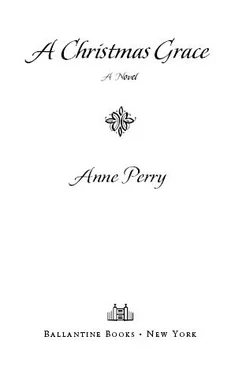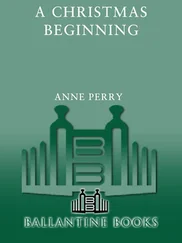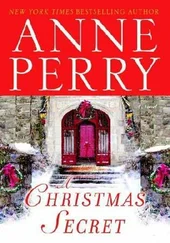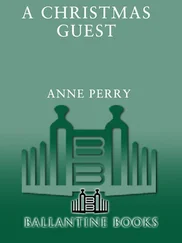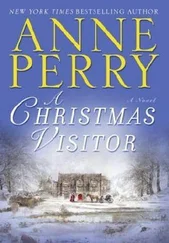Gulls wheeled in the air above her, their cries blending with the sighing of the wind in the grass and the constant sound of the waves. She walked a little faster, and found herself smiling for no apparent reason. If this was what the local people thought of as a storm, it was nothing!
She reached the low, straggling houses of the village, mostly stone-built and looking as if they had grown out of the land itself. She crossed the wiry turf to the roadway and continued along it until she came to the small shop. Inside there were two other people waiting to be served and a small, plump woman behind the counter weighing out sugar and putting it into a blue bag. Behind her the shelves were stacked with all kinds of goods—groceries, hardware, and occasional household linens.
They all stopped talking and turned to look at Emily.
“Good morning,” she said cheerfully. “I’m Emily Radley, niece of Mrs. Ross. I’ve come to spend Christmas with her.”
“Ah, niece, is it?” a tall, gaunt woman said with a smile, pushing gray-blonde hair back into its pins with one hand. “My neighbor’s granddaughter said you’d come.”
Emily was lost.
“Bridie Molloy,” the woman explained. “I’m Kathleen.”
“How do you do?” Emily replied, uncertain how to address her.
“I’m Mary O’Donnell,” the woman behind the counter said. “What can I be doing to help you?”
Emily hesitated. She knew it was unacceptable to push ahead of others. Then she realized they were curious to see what she would ask for. She smiled. “I have only letters to post,” she said. “Just to let my family know that I arrived safely, and have met with great kindness. Even the weather is very mild. I fancy it will be much colder at home.”
The women looked at each other, then back at Emily.
“Nice enough now, but it’s coming,” Kathleen said grimly.
Mary O’Donnell agreed with her, and the third woman, younger, with tawny-red hair, bit her lip and nodded her head. “It’ll be a hard one,” she said with a shiver. “I can hear it in the wind.”
“Same time o’ the year,” Kathleen said quietly. “Exact.”
“The wind has died down,” Emily told them.
Again they looked at each other.
“It’s the quiet before it hits,” Mary O’Donnell said softly. “You’ll see. The real one’s out there waiting.” She pointed towards the west and the trackless enormity of the ocean. “I’ll have your letters, then. We’d best get them on their way, while we can.”
Emily was a trifle taken aback, but she thanked her, paid the postage, and wished them good day. Outside again in the bright air, she started along the path back, and almost immediately saw ahead of her the slender figure of a man with his head turned towards the sea, walking slowly and every now and then stopping. Without hurrying she caught up with him.
At a distance, because of the ease with which he moved, she had thought him young, but now that she could see his face she realized he was probably sixty. His hair flying in the wind was faded and his keen face deeply lined. When he looked at her his eyes were a bright gray.
“You must be Susannah’s niece. Don’t be surprised,” he observed with amusement. “It’s a small village. An incomer is news. And we are all fond of Susannah. She wouldn’t have been without friends for Christmas, but that isn’t the same as family.”
Emily felt defensive, as if she and Charlotte had been to blame for Susannah’s situation. “She was the one who moved away,” she replied, then instantly thought how childish that sounded. “Unfortunately, after my father died, we didn’t keep in touch as we should have.”
He smiled back at her. “It happens. Women follow the men they love, and distances can be hard to cross.”
They were standing on the shore, the wind tugging at their hair and clothes, rough but mild, no cruelty in it. She thought the waves were a little steeper than when she had set out, but perhaps she was merely closer to them here on the sand.
“I’m glad she was happy here,” she said impulsively. “Did you know her husband?”
“Of course,” he replied. “We all know each other here, and have done for generations—the Martins, the Rosses, the Conneeleys, the Flahertys. The Rosses and Martins are all one, of course. The Conneeleys and the Flahertys also, but in an entirely different way. But perhaps you know that?”
“No, not at all?” she lifted her voice to make it a question.
He did not need a second invitation. “Years ago, last century, the Flahertys murdered all of the Conneeleys, except Una Conneeley. She escaped alive, with the child she was carrying. When he was born and grew up he starved himself to force her to tell him the truth of his birth.” He glanced at her to make sure she was listening.
“Go on,” Emily prompted. She was in no hurry to be back inside the house again. She watched the seabirds careening up the corridors of the wind. The smell of salt was strong in the air, and the surf pounding now white on the shore gave her a sense of exhilaration, almost of freedom.
“Well, she told him, of course,” he continued, his eyes bright. “And when he was fully grown he came back here and found the Flaherty tyrant of the day living on an island in a lake near Bunowen.” His face was vivid as if he recalled it himself. “Conneeley measured the distance from the shore to the island, and then set two stones apart on the hillside, that exact space, and practiced until he could make the jump.”
“Yes?” she urged.
He was delighted to go on. “Flaherty’s daughter nearly drowned in the lake and young Conneeley rescued her. They fell in love. He jumped the water to the island and stabbed Flaherty’s eyes out.”
Emily winced.
He grinned. “And when the blind man then offered to shake his hand, the girl gave her lover a horse’s leg bone to offer instead of his hand, which shows she knew her father very well. Flaherty crushed it to powder with his grip. Conneeley killed him on the spot, and he and Flaherty’s daughter lived happily ever after—starting the whole new clan, which now peoples the neighborhood.”
“Really?” She had no idea if he was even remotely serious; then she saw the fire of emotion in his face and knew that, for all his lightness of telling, he was speaking of passions that were woven into the very meaning of his life. “I see,” she added, so that he would know she understood its validity.
“Padraic Yorke,” he said, holding out his thin, strong hand.
“Emily Radley,” she replied, taking it warmly.
“Oh, I know,” he nodded. “Indirectly you are part of our history here, because you are Susannah’s niece, and Susannah was Hugo Ross’s wife.” His voice dropped. “It hasn’t been the same since he died.”
She should have felt this was slightly imprisoning, but actually she was happy to be part of this enormous, wind-torn land, just for a season, and of its people who knew each other with such fierce intimacy.
Padraic Yorke started walking again, and she kept pace with him. He pointed out the various plants and grasses, naming them all, and telling her what would flower here in the spring, and what in the summer. He told her where the birds would nest, when their chicks would hatch and when they would fly. She listened not so much to the information, which she would never remember, but to the love of it in his voice.
It was a different world from London, but she began to see that it had a unique beauty, and perhaps if you loved a man deeply enough, and he loved you, then it could be a good land. Perhaps in Susannah’s place she would have come here too. Jack had asked nothing of her, no sacrifice at all, except the forfeit of a little of the social position gained from her first husband. She still had the money she had inherited from him in trust for their son.
Читать дальше
